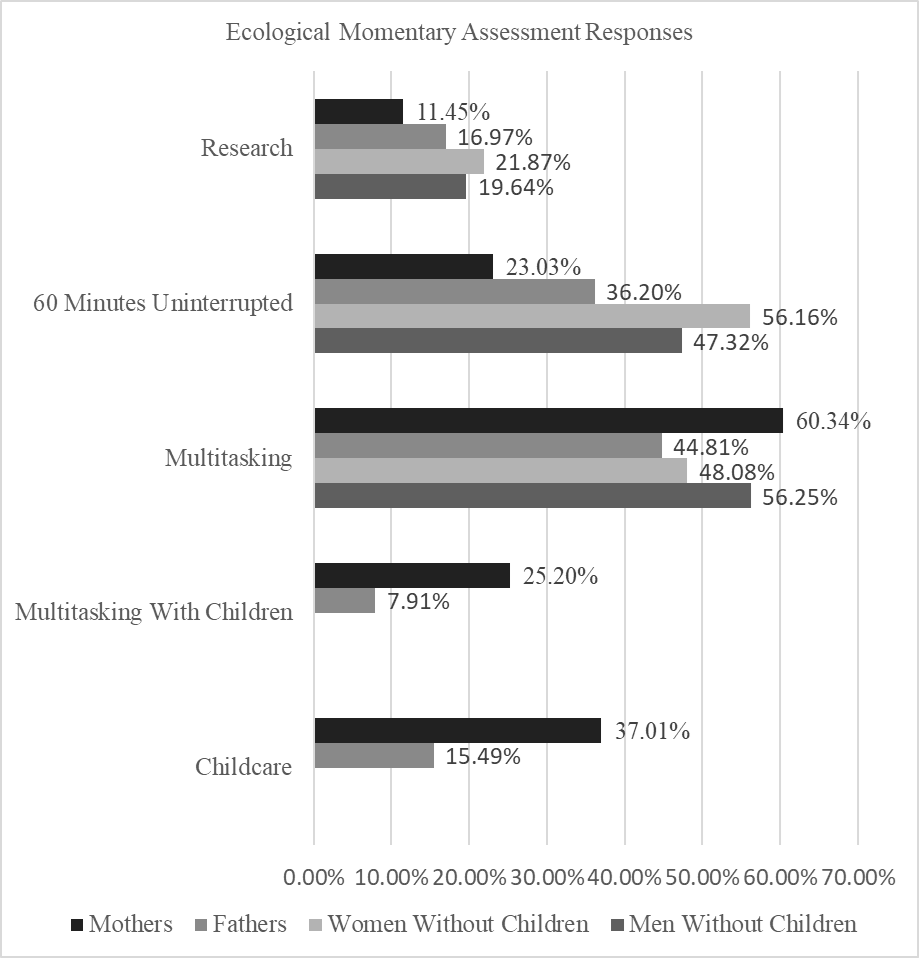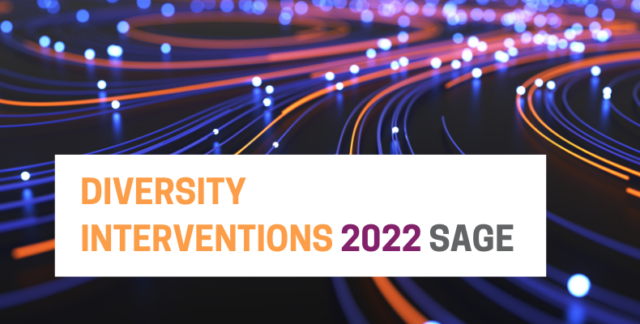Abstract
Background
The COVID-19 pandemic and resulting lockdowns had a near-immediate impact on the lives of academics around the world. In many situations, mothers of young children decreased working hours (Collins et al., 2020) and academic mothers reported decreased ability to conduct research (Myers et al., 2020). As a result, research publications by women dropped precipitously (Kibbe, 2020).
Methods
We used Ecological Momentary Assessment (EMA, also known as Random Time Sampling) to examine the real-time, day-to-day activities of 130 male and female academics with and without children. Data were collected in June and July of 2020. Participants were asked at six random time-points per day over the course of one week to report the activities they were currently undertaking.
Results
Academic parents, especially mothers, were found to be less likely to have access to uninterrupted work time. Academic mothers were also three times more likely than academic fathers to multitask, and nearly five times more likely than academic fathers to multitask by doing an activity and caring for children simultaneously. Finally, academic mothers were 4.25 times more likely than academic fathers to be caring for children when contacted.

Conclusions
The COVID-19 pandemic has had unequal effects on the time of mothers. Decreases in research publication over the course of the last two years will have a compounding effect on access to research funding, promotion and other opportunities for academic mothers, unless universities work to mitigate these effects.
References
Collins C, Landivar LC, Ruppanner L and Scarborough WJ (2020) ‘COVID‐19 and the gender gap in work hours’, Gender, Work & Organization, 28(S1):101–112.
Kibbe MR (2020) ‘Consequences of the COVID-19 pandemic on manuscript submissions by women’, JAMA Surgery, 155(9):803–804.
Myers KR, Tham WY, Yin Y, Cohodes N, Thursby JG, Thursby MC, Schiffer P, Walsh JT, Lakhani KR and Wang D (2020) ‘Unequal effects of the COVID-19 pandemic on scientists’, Nature Human Behaviour, 4(9):880–883.
Presenter
- Roxanna N. Pebdani, the University of Sydney
Co-authors
- Adriana Zeidan, the University of Sydney
- Lee-Fay Low, the University of Sydney
- Andrew Baillie, the University of Sydney

